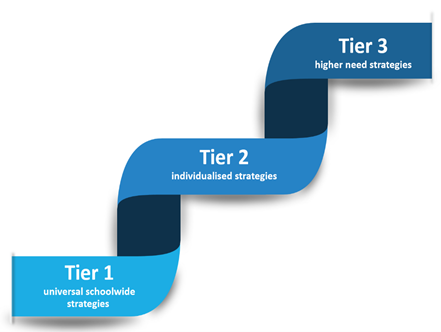When letting us know about your child’s absence, please always give a reason. All absences have to be coded and then become part of your child’s attendance record.
Attendance
If we are given no reason, absences will be unauthorised.
On some very busy mornings, it can be very difficult to get through on the phones to leave a message about absence.
High levels of attendance and punctuality are expected, so that students can take full advantage of all educational opportunities available to them.
We have two ways you contact us:
Year 7 – 11 Absences
01788 222 060 Option 2 – Year 7 – 11 absences
Attendance@rugbyfreesecondary.co.uk (year 7 – 11)
Sixth Form Absences
01788 222 060 Option 1 – Sixth form absences
RFSS-sixthformattendance@rugbyfreesecondary.co.uk (sixth form)
Attendance Manager: Mrs Lindsey Crouch
Email: lcrouch@rugbyfreesecondary.co.uk
Senior Attendance Champion: Mr Howard Stokes

Rugby Free Secondary School is proudly recognised as an Inclusive Attendance school. Our unwavering commitment to attendance centres around child-centric actions, evidence-informed practices, and a shared understanding of everyone’s roles and collective responsibilities to promote exceptional attendance.
Inclusive Attendance Professional Development Model
Our attendance approach is fundamentally guided by the Inclusive Attendance professional development model. Comprising six tailored Learning Modules, this model empowers us to deepen our understanding by facilitating continuous professional learning for all staff. Within this model, the four domains of practice ensure the provision of professional learning, professional development, evidence-based practices, and exemplary leadership and management to seamlessly integrate theory into practice.
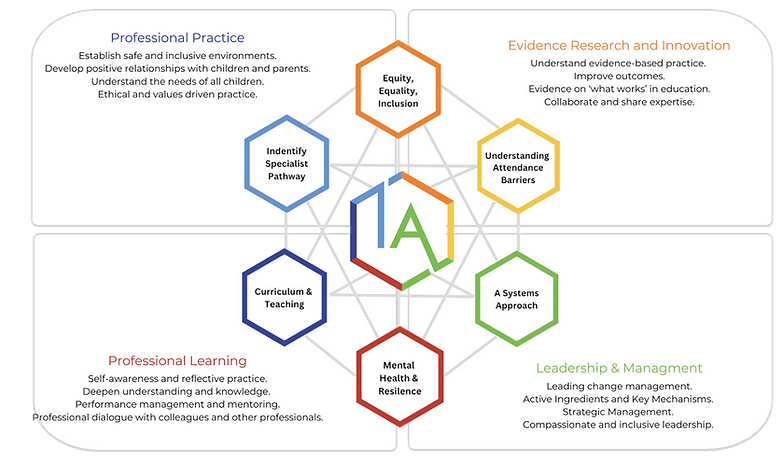
Annual Inclusive Attendance 7-Month Development Programme
Year after year, we review and further enhance our attendance practices through dedicated participation in the Inclusive Attendance 7-month development programme. This investment allows us to remain at the forefront of educational change and extends unparalleled support to our children and their families, equipping them with access to the finest possible assistance.
Multi-Tiered System of Support
To guarantee a comprehensive approach to attendance, we implement a Multi-Tiered System of Support. A Multi-Tiered System of Support (MTSS) for school attendance involves three tiers of intervention, with roles for teachers, the school, children, parents, and external agencies – including the Local Authority. Data-driven decision-making and training requirements are pivotal to the implementation of the system. The system aligns with the Department for Education’s (DFE) “Working Together to Improve School Attendance” guidelines.
Tier 1 – Universal Approach: Establishing a baseline universal attendance approach that benefits all children.
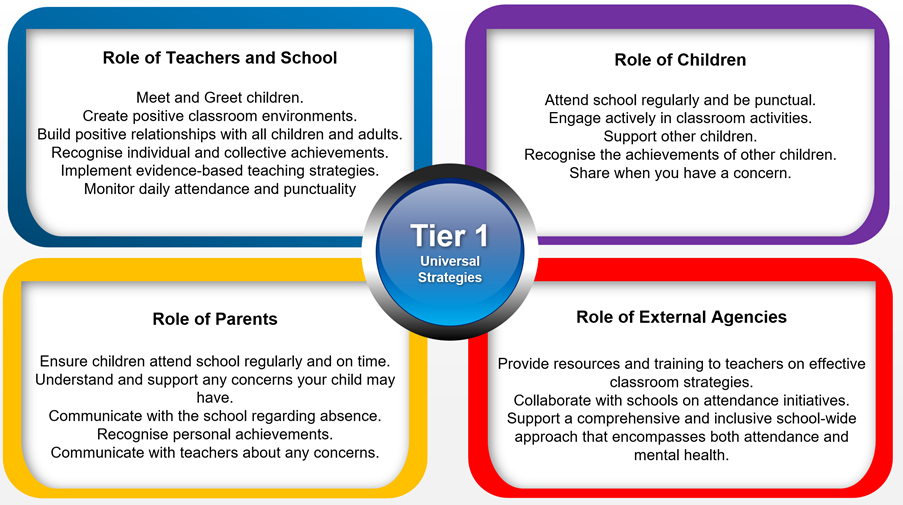
Tier 2 – Individualised Strategies and Early Help Support: Tailoring strategies to individual needs and providing early help support for persistent attendance challenges.
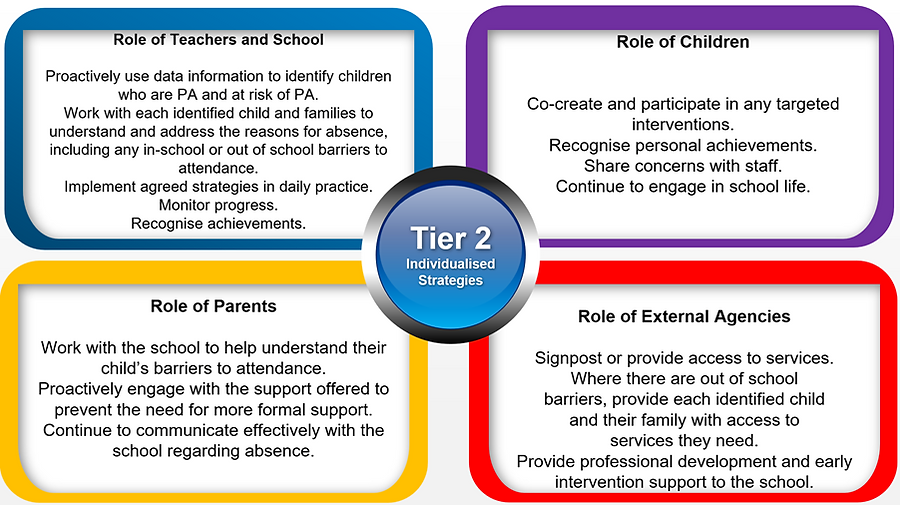
Tier 3 – Higher Needs Strategies Support: Furnishing specialised support for children, young people, and families with complex attendance requirements, including access to external agency support when necessary.
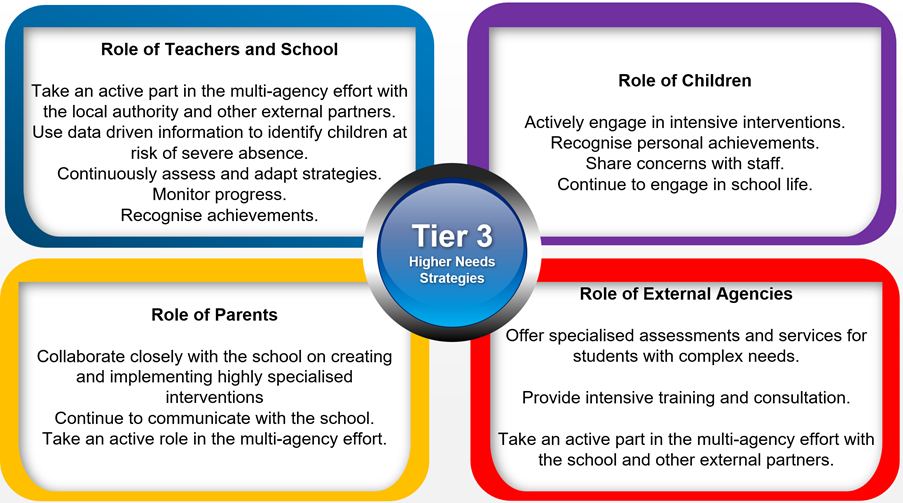
Recognition-Based Approach
Our attendance philosophy is rooted in a recognition-based approach that recognises both personal and collective achievements. This approach serves to thwart isolation, prevent victimisation, cultivate positive environments, nurture relationships, foster inclusivity, and ultimately cultivate intrinsic motivation among our children, families, and staff. At RFSS we ensure that all families who require additional support to ensure their child attends school are offered frequent reviews of their child’s progress and ensure that there is a personalised attendance plan in place to remove any barriers and help support reintegration in to school. All plans and support are based on a relationship approach and reflect the knowledge that every child is different.
The Importance of School Attendance
School attendance is not merely a requirement but a fundamental pillar of education. It plays a pivotal role in shaping academic success, personal growth, and future prospects, making it an indispensable aspect of any educational system.
-
Academic Achievement: Regular attendance directly correlates with academic success. Children who attend school consistently are more likely to keep up with the curriculum, perform better in exams, and improve their life outcomes.
-
Knowledge Acquisition: School is where children acquire knowledge and skills that are crucial for their personal and professional growth. Missing days means missing out on valuable learning opportunities.
-
Social Development: School provides a vital social environment for children and adolescents to interact with peers, develop friendships, and learn essential social skills. Consistent attendance ensures children remain connected to their peer group.
-
Building Routine: School attendance establishes a structured routine in children’s lives, teaching them time management and responsibility, which are valuable life skills.
-
Teacher Interaction: Regular attendance allows for meaningful teacher-child interactions. Teachers can provide personalised support, address questions, and assess individual progress more effectively when children attend regularly.
-
Preventing Knowledge Gaps: Frequent absences can lead to significant knowledge gaps, making it challenging for children to catch up with missed lessons, potentially resulting in long-term academic struggles.
-
School Engagement: Children who attend school regularly are more likely to engage in extracurricular activities, sports, and other enriching experiences that contribute to their overall development.
-
Legal and Parental Responsibility: Parents or guardians are legally responsible for ensuring their child’s regular school attendance. Failing to do so can lead to legal consequences.
-
Community Well-being: High levels of school attendance contribute to the overall well-being of communities.

